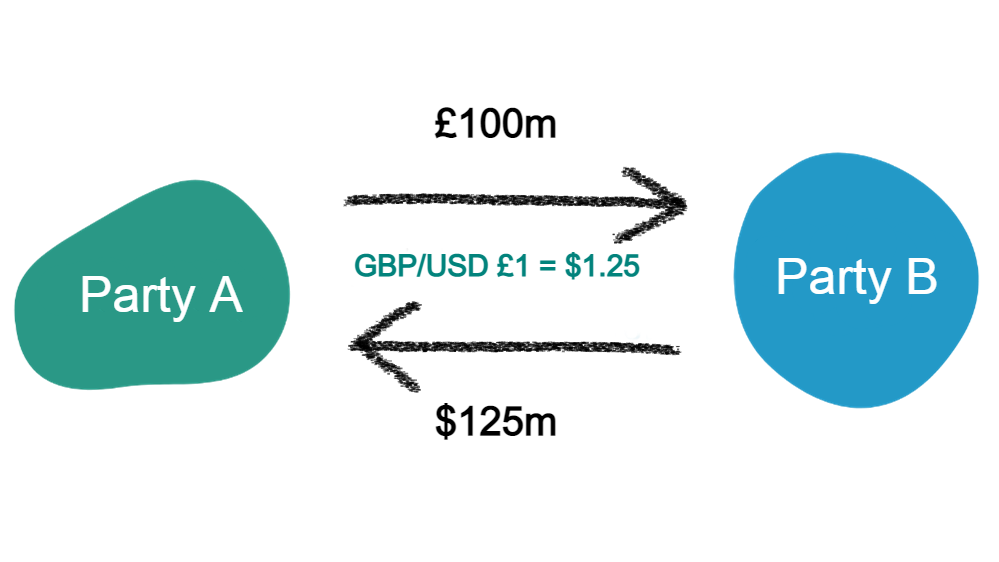
Whether you are an investor buying a £100m office building in central London or a contractor buying marble from Italy, it is critical to mitigate your risks. Moreover, investors diversifying into international markets must safeguard the value of their portfolio by protecting against fluctuations in foreign currency.
However, real-estate professionals have never fully understood the effects of risk or hedging in foreign exchange, or forex.
Hedging can help cash to flow and enable smooth operations in volatile currency markets. Yet all organisations must develop and execute forex and hedging strategies to reduce risk and mitigate exposures to market fluctuations.
Why currency fluctuation matters
Currencies can fluctuate considerably for several reasons, including:
-
central bank decisions
-
changes in inflation
-
the balance of trade and international cash flows
-
investor speculation.
Any interest paid on a debt can fluctuate as a result of these factors. Therefore, when a fund or investor carries long-term debt they will undoubtedly be exposing themselves to the risk of loan fluctuation.
Funds or investors will need to implement hedging strategies to mitigate such risks. A common way of doing so is either through an interest rate cap or swap, which will effectively lower or eliminate such a rate risk.
Put simply, when setting a cap the fund or investor pays the lender what is called a floating rate, comprising the initial rate plus a margin. When this rate is exceeded, the lender will pay out on the difference between the initial rate and the cap (initial rate plus margin). The fund or investor has thus effectively limited their interest rate risk at a level agreed in advance.
In contrast to interest rate risk on international investment is the issue of changes in forex rates, often referred to as currency risk. There are several key influences on global exchange rate risk, including:
-
national interest rates
-
inflation
-
real-estate markets
-
geopolitical instability
-
financial and capital markets
-
economic cycles.
From a financial standpoint, the UK is considered heavily regulated and a haven for international investors wanting to benefit from expanding into a new market. This has led to more overseas capital invested in UK real estate, so it is critical for investors to mitigate any risks.
Global funds invest billions of pounds in the UK market. Whether they buy single assets or invest directly in projects as a funder, their risk and exposure to currency fluctuations over time are high. For example, if the currency rate fluctuates then the funder would need to inject more capital to meet the shortfall.
A hedging strategy is, therefore, key to mitigating any currency and interest risk resulting from market volatility and ensures that investor returns are protected when making unhedged currency rate transactions. Moreover, the risk to an investor is high in terms of failure to meet return targets.
However, the decision over whether to hedge or not is complex, which underscores the importance of analysing market data and intelligence when designing a strategy.
'The UK is considered heavily regulated and a haven for international investors wanting to benefit from expanding into a new market'
Hedging against market uncertainty
One way to mitigate uncertainty is to use a forward contract, underwritten by a financial institution, where you as an investor agree to buy (for example) sterling at a given rate of 1.17 and then sell in euros at the pre-agreed rate on an agreed date in the future. This will give you a clearer idea of the value of the asset at the date of the planned purchase. However, bear in mind that the value of an asset on the domestic market could still increase or decrease, unlike the forward contract that is fixed.

Taking the example shown in Figure 1, in four months you would get £1 for every €1.17 sold, regardless of what happens to the exchange rate on the open market in the four-month timeframe.
A forward contract can be used under various circumstances, including:
-
managing a fund or property portfolio
-
acquiring and selling real estate
-
providing finance through the duration of a development.
Currency swaps help investors and funds by protecting the value in terms of equity and, subject to structuring, could provide periodic returns from the investment.
A swap differs from a forward contract in its indefinite timing: a swap is used on an indefinite timeline, unlike a forward contract that has a fixed date of execution. Put simply, a swap is an insurance policy where one currency is exchanged for another at the rate on the date of exchange. On the maturity of the insurance policy, the investor can exchange back to the original currency rate at the time of taking out the swap and therefore eliminate currency exchange risk.
Swaps are ideal when two countries have disparate interest rates; in this scenario, fluctuations and volatility may affect the cost of hedging currency rates. For example, one party might receive £100m while the other receives $125m (Figure 2). This implies an exchange rate of $1.25 to the pound. At the end of the agreement, the two parties to the contract will swap again at either the original exchange rate or another agreed one, closing out the deal.

In property terms, a London investor agreeing to buy a commercial property in New York for $100m would secure the deal at today's exchange rate from sterling to dollars, where the swap is used to price up the investment without knowing when payment is due, therefore offering security without full commitment but giving security on both the value and exchange rate.
Approaching the future strategically
Any international organisation looking to buy a real-estate portfolio or invest in a development project should take such a strategic approach and manage forex risk if they want to maximise returns.
While there are several potential factors to consider when investing in property internationally and many of the decisions may not be straightforward, one thing is clear: as real estate becomes increasingly global in nature, more investors could find currency a growing source of investment risk.
Dr Joe Giordano MRICS is a non-executive director at Jackson Swiss Partners
Contact Joe: Email
Adam Wright is CEO and founder at Jackson Swiss Partners
Contact Adam: Email
Mara Neconesnic is marketing director and head of growth at Jackson Swiss Partners
Contact Mara: Email

